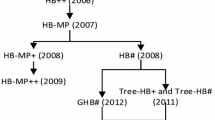Abstract
Sensors and IoT (Internet of Things), which include RFID (Radio-Frequency IDentification) tags, have witnessed widespread adoption across a wide variety of application domains over the last two decades. These sensors and IoT devices are often a part of distributed sensor networks. As with any distributed processing scenario, there is a need to ensure that these devices provide required security and privacy to the tagged object as well as its bearer. Cryptography has been used to address the security and privacy aspects of RFID tags. Unlike a majority of other IoT devices, the commonly used passive RFID tags are extremely resource-constrained and therefore can accommodate only lightweight operations. Security and privacy concerns still need to be addressed as they remain significant regardless of implementation details. We evaluate RFID-based lightweight mutual authentication protocols that have been recently proposed and identify vulnerabilities.





Similar content being viewed by others
References
Alamr AA, Kausar FF, Kim J, Seo C (2018) A secure ECC-based RFID mutual authentication protocol for internet of things. J Supercomput 74:4281–4294
Anandhi S, Anitha R, Sureshkumar V (2018) Automatic RFID reader-to-reader delegation protocol for SCM in cloud computing environment. J Supercomput 74:3148–3167
Chinnasamy NV, Senthilkumar A (2020) Secured distributed routing technique using extended DART and table elimination (ET-DART) technique in wireless sensor networks environment. J Supercomput 76:915–931
Chuang Y, Li F (2020) TCR: a trustworthy and churn-resilient academic distribution and retrieval system in P2P networks. J Supercomput 76:7107–7139
Fotohi R, Firoozi Bari S (2020) A novel countermeasure technique to protect WSN against denial-of-sleep attacks using firefly and Hopfield neural network (HNN) algorithms. J Supercomput 76:6860–6886
Huh J (2020) Reefer container monitoring system using PLC-based communication technology for maritime edge computing. J Supercomput 76:5221–5243
Kang J (2019) Lightweight mutual authentication RFID protocol for secure multi-tag simultaneous authentication in ubiquitous environments. J Supercomput 75:4529–4542
Mabodi K, Yusefi M, Zandiyan S, Irankhah L, Fotohi R (2020) Multi-level trust-based intelligence schema for securing of internet of things (IoT) against security threats using cryptographic authentication. J Supercomput 76:7081–7106
Mitrokotsa A, Rieback MR, Tanenbaum AS (2010) Classifying RFID attacks and defenses. Inf Syst Front 12(5):491–505
Prakash G, Krishnamoorthy R, Kalaivaani PT (2020) Resource key distribution and allocation based on sensor vehicle nodes for energy harvesting in vehicular ad hoc networks for transport application. J Supercomput 76:5996–6009
Reid J, Gonzalez Nieto JM, Tang T, Senadji B (2007) Detecting relay attacks with timing-based protocols. Proceedings of ASIACCS, March, 204-213
Salim MM, Rathore S, Park JH (2020) Distributed denial of service attacks and its defenses in IoT: a survey. J Supercomput 76:5320–5363
Tewari A, Gupta BB (2017) Cryptanalysis of a novel ultra-lightweight mutual authentication protocol for IoT devices using RFID tags. J Supercomput 73:1085–1102
Tu Y-J, Piramuthu S (2020) On addressing RFID/NFC-based relay attacks: an overview. Decis Support Syst 129:113194
Vallathan G, John A, Thirumalai C, Mohan S, Srivastava G, Chun-Wei J (2020) Suspicious activity detection using deep learning in secure assisted living IoT environments. J Supercomput. https://doi.org/10.1007/s11227-020-03387-8
Wang K-H, Chen C-M, Fang W, Wu T-Y (2018) On the security of a new ultra-lightweight authentication protocol in IoT environment for RFID tags. J Supercomput 74:65–70
Wang R, He G, Wu X, Wang F, Hu Y (2020) Research on suboptimal energy balance of non-uniform distributed nodes in WSN. J Supercomput 76:3527–3541
Wei Y-C, Wu W-C, Lai G-H, Chu Y-C (2020) pISRA: privacy considered information security risk assessment model. J Supercomput 76:1468–1481
Author information
Authors and Affiliations
Corresponding author
Additional information
Publisher's Note
Springer Nature remains neutral with regard to jurisdictional claims in published maps and institutional affiliations.
Rights and permissions
About this article
Cite this article
Tu, YJ., Kapoor, G. & Piramuthu, S. Security of lightweight mutual authentication protocols. J Supercomput 77, 4565–4581 (2021). https://doi.org/10.1007/s11227-020-03448-y
Accepted:
Published:
Issue Date:
DOI: https://doi.org/10.1007/s11227-020-03448-y




